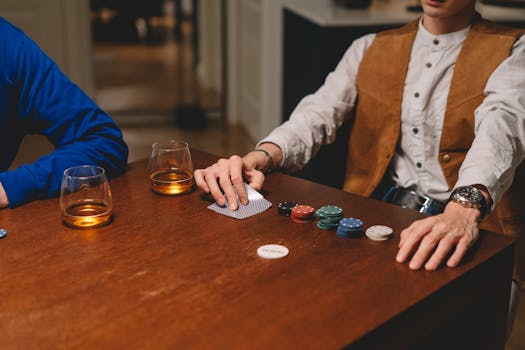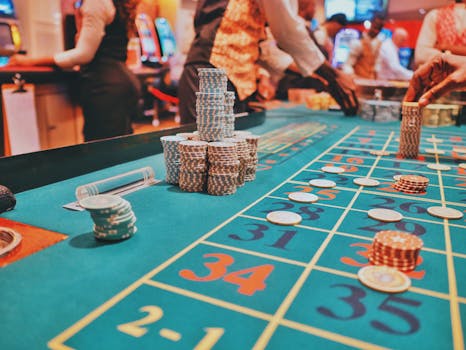Exploring the Illusion of Control in the World of Gambling
The illusion of control is a psychological phenomenon where individuals believe they can influence outcomes that are largely random and beyond their control. This concept is particularly prevalent in gambling, where players often think that they can exert some form of control over games of chance. Understanding this illusion and recognizing its manifestations can significantly impact how we approach gambling, potentially reducing risky behaviors and promoting healthier, more aware gaming practices.
Understanding the Illusion of Control in Gambling
The illusion of control was first identified by psychologist Ellen Langer in the 1970s. In the context of gambling, it manifests when players believe that they can predict or control the outcome of a game that is actually determined by chance. This can lead to increased gambling frequency, higher bets, and greater risk-taking, all of which can exacerbate problem gambling behaviors.
Common Manifestations in Gambling
- Personal Rituals and Superstitions: Many gamblers perform specific rituals or adhere to personal superstitions before or during gambling, believing these actions influence the outcome.
- Near Misses: Experiencing a near miss can reinforce the illusion of control by making players feel they were close to winning and that they can win if they continue playing.
- Choice of Game: Gamblers may choose games that seem to require skill, like poker or sports betting, over purely chance-based games like slot machines, under the belief that their skills can influence the outcome.
Strategies to Counteract the Illusion of Control
Educational Programs
Gambling awareness programs aim to educate individuals about the randomness of gambling outcomes and the risks of problem gambling. These programs, often offered by mental health organizations and gambling awareness groups, help debunk myths and teach strategies for responsible gambling.
Advantages:
- Increases knowledge and awareness about gambling risks.
- Promotes healthier gambling habits through informed decision-making.
Disadvantages:
- Effectiveness varies widely among individuals.
- May not be sufficient to change deeply ingrained behaviors in serious gamblers.
Cognitive Behavioral Therapy (CBT)
CBT is a psychotherapeutic approach that helps individuals recognize and change detrimental thought patterns and behaviors. In the context of gambling, CBT can help modify beliefs related to the illusion of control.
Advantages:
- Provides tools for long-term change in gambling behavior.
- Addresses underlying issues that contribute to problem gambling.
Disadvantages:
- Requires commitment and effort from the participant.
- Access to qualified therapists may be limited.
Regulatory Measures
Regulations such as placing limits on bets, enforcing mandatory breaks in gaming, and establishing clear, visible odds can help counteract the illusion of control. By structuring the gambling environment to emphasize the role of chance, these measures can reduce the misperception that control is possible.
Advantages:
- Imposes external controls through policy.
- Potentially reduces excessive gambling by limiting opportunities.
Disadvantages:
- May be viewed as restrictive by regular gamblers.
- Enforcement can be challenging and resource-intensive.
Practical Example
In a study examining the effects of informed gambling, participants who received educational materials about randomness were less likely to exhibit irrational gambling behaviors compared to those who did not receive such information. This suggests that education can play a crucial role in mitigating some of the psychological traps associated with gambling.
Conclusion
The illusion of control is a significant factor in gambling behaviors, often leading individuals to gamble more frequently and with higher risks. By understanding and addressing this illusion through educational programs, therapeutic interventions, and regulatory measures, both individuals and communities can foster safer gambling practices. For anyone engaged in or affected by gambling, recognizing this illusion is the first step towards healthier gambling habits. If you or someone you know is struggling with gambling, consider reaching out to organizations like Gamblers Anonymous or seeking professional help to explore these options. Remember, when it comes to gambling, the only thing you can truly control is your decision to play responsibly.

.png)



